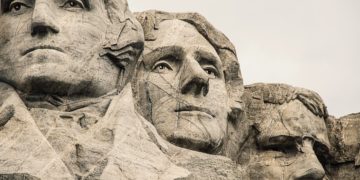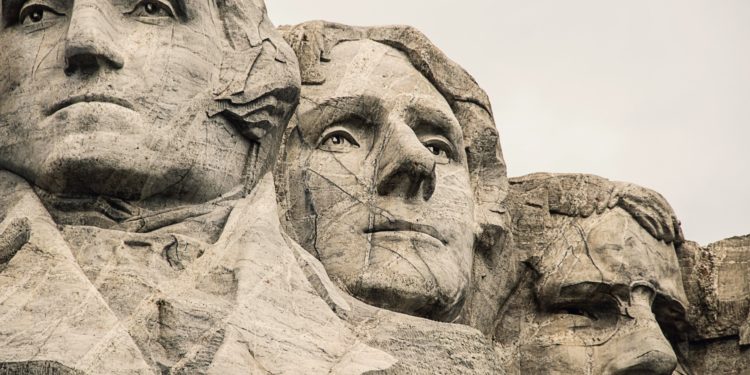Presidents’ Day was originally established in 1885 in recognition of President George Washington. The holiday grew in popularity when the Uniform Monday Holiday Act was signed into law by President Lyndon B. Johnson in 1971. On it we honor those who served in the office of president of the United States.
As I reflect on Presidents’ Day, I have no doubt that this nation has had some talented and gifted men serve in the Oval Office. Our presidents have led us through world wars, depressions, and national disasters. They have led us through sweeping changes in industry, technology, and society. We do well to give thanks for many of the leaders God has ordained to lead our nation over the past 246 years.
However, on Presidents’ Day, it is also worth reflecting on how the role of the president has morphed into something the Founding Fathers never intended.
The debates over the ratifying of the Constitution remain some of the most telling and insightful exchanges in American history. A group of writers, known as the Anti-Federalists, were deeply concerned with the proposed Constitution. They warned of a large, centralized federal government, trampling on the freedoms of both states and individuals. In hindsight, their warnings were incredibly prescient. Much of what they feared would happen if the Constitution was adopted has indeed come to pass, most notably the rise of a tyrannical, centralized state. Even so, the wisdom of the Anti-Federalists is little consulted in our day.
Be that as it may, one of their main concerns was with the office of the president. They viewed a strong executive with too much power as a potential threat to freedom. Colonists had experienced just such a tyrant in the monarch King George III, and many were wary of having another “king.”
One Anti-Federalist, known as “An Old Whig,” critiqued the proposed Constitution: “In the first place the office of the President of the United States appears to me to be clothed with such powers as are dangerous. To be the fountain of all honors in the United States, commander in chief of the army, navy and militia, with the power of making treaties and of granting pardons…is in reality to be a KING as much a King as the King of Great Britain.”
In the end, the Federalists’ arguments won the day and the Constitution, with its provision for a strong executive, was adopted. However, beyond leaving us the legacy of their erudite writings, the Anti-Federalists also left us the Bill of Rights—a final attempt to limit the power the federal government was granted, rather broadly and vaguely, in the Constitution.
What is perhaps most interesting to note is that even those who supported the new Constitution would likely stand aghast at the power that has been consolidated by the federal government today, especially the executive branch.
Writing in defense of the proposed Constitution and the powers it granted to the president, Alexander Hamilton assured the American people that the president would have very limited authority. He went so far as to say that unlike the king of Great Britain, the president would have no power to make rules concerning the commerce or currency of the nation and no authority to confer privileges. Hamilton listed several things the king had authority to do that the president would not: declare war, make unilateral appointments to offices, and establish markets, regulate weights and measures, lay embargoes for a limited time, and coin money.
Unfortunately, many presidents since the ratification of the Constitution have done those very things, often cloaked by a gargantuan federal bureaucracy. The fifteen executive departments are examples of how the power of the president has grown to a level that Hamilton assured us it would not.
Despite the power the office of the president has mustered for itself over the years, America retains the roots for liberty that the Anti-Federalists favored. States and local municipalities were to have far greater power than many do today. The president was to be limited in his authority.
There is a real sense in which the office of the president should be the least of our concerns. I am convinced that the best presidents are those who do the least. Whether he is a Republican or Democrat, I do not want the president to “fix” the economy, “end” COVID, or manipulate international trade.
Even with the immense amount of power wielded by a president at the head of powerful and oppressive federal departments, our local leaders can have a far greater impact on our daily lives. Our state representatives, county officials, and township leaders will be the ones who can stand against federal (and state) tyranny.
The great need is for men of courage, leading at the local level, who will oppose unjust federal overreach.
In fact, I would rather have a tyrannical federal government, if I can live in a state or county where freedom reigns and unjust federal laws are ignored by local officials, than have a great president but live in a county run by tyrants.
Freedom thrives in a decentralized state. The greatest check against a tyrannical president is not the legislative or judicial branch—it is local communities, led by courageous men, who will nullify unjust and unconstitutional federal laws or mandates. On this Presidents’ Day, we should remember the presidents who have served this nation, but we should also stop looking to the Oval Office to solve our problems. Let’s make the American presidency great again—not by seeking to get “our man” into the office, but by returning to a very limited role for the office.

Chris Hume is the host of The Lancaster Patriot Podcast and the author of several books, including Seven Statist Sins. He can be reached at info@thelancasterpatriot.com.





























